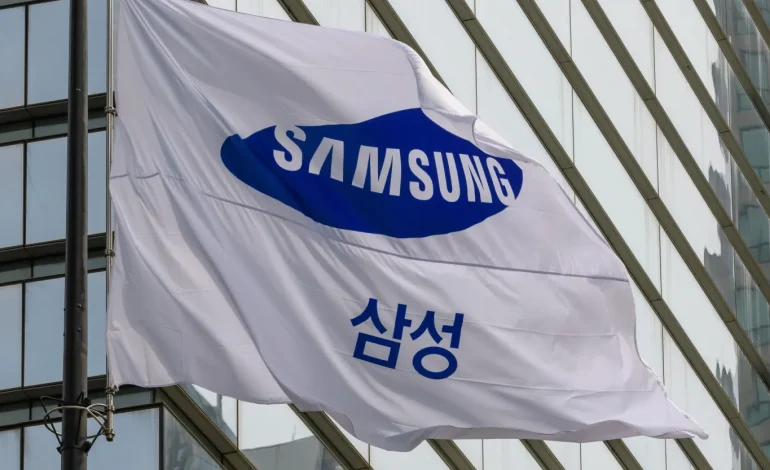Samsung Electronics’ stock jumped as much as 7% on Monday after the South Korean tech giant announced a dramatic $7.2 billion share buyback plan aimed at reversing the company’s recent struggles in the stock market.
This is Samsung’s first share repurchase program since 2017, signaling a decisive move to boost investor confidence following a year of falling stock prices and mounting concerns over its competitive position.
The plan involves buying back a total of 10 trillion won ($7.2 billion) worth of Samsung shares over the next year. Of this, 3 trillion won will be used to purchase shares in the next three months, with those shares being canceled to reduce the company’s outstanding stock. The remaining 7 trillion won will be repurchased as authorized by the board, with further decisions on timing and the use of treasury shares to be determined in due course.
The announcement follows a steep decline in Samsung’s stock price, which had dropped by over 30% this year, hitting a four-year low earlier in November. Samsung’s performance has been marred by concerns over its loss of market share in memory chips, a core business for the company, and its struggles to catch up with rivals like SK Hynix in the high-bandwidth memory (HBM) chip market. These factors have been compounded by global macroeconomic uncertainties, including fears about potential tariffs under a new US administration and the increasing dominance of competitors in the semiconductor space.
While the buyback plan is seen by many analysts as a positive short-term catalyst for the stock, some observers suggest it may also be a response to more pressing internal pressures. Park Ju-geun, head of Seoul-based research firm Leaders Index, suggested that the buyback was, in part, a move to protect the Lee family—the founding family of Samsung—who may face margin calls on loans tied to their stock holdings. The family is said to have nearly 3 trillion won in outstanding loans, which could trigger a margin call if Samsung’s stock price continued to fall below key levels.
However, Samsung has denied that the buyback is primarily aimed at addressing the Lee family’s financial situation. The company emphasized that the repurchase plan was designed to enhance shareholder value and counter the recent downturn in its stock price. Analysts, including Jay Kwon from JPMorgan Chase, viewed the buyback as a proactive step by management to prevent further decline in the stock’s value.
Despite the boost in stock price following the buyback announcement, some analysts remain cautious. Namuh Rhee, head of the Korea Corporate Governance Forum, pointed out that the buyback, amounting to just 3% of Samsung’s market capitalization, is relatively small compared to the company’s larger challenges.
“This is too little, too late,” he said.
Rhee suggested that Samsung will need to address its declining technological edge in memory chips, smartphone businesses, and display technologies to recover long-term investor confidence.
Albert Yong, managing partner at Petra Capital Management, echoed similar concerns, noting that much of Samsung’s business segments are currently facing headwinds. He stressed that the company must find ways to reinvigorate its technology and regain its competitive advantage, particularly in the semiconductor and smartphone markets, to secure long-term growth.
The stock buyback could provide some short-term relief for Samsung, but analysts agree that a sustained recovery will depend on the company’s ability to regain its technological leadership in key markets. In particular, Samsung’s failure to secure high-bandwidth memory (HBM) contracts with major AI players like Nvidia has led to concerns about its long-term competitiveness. SK Hynix, a key rival, recently emerged as the primary supplier of HBM chips to Nvidia, further adding to the pressure on Samsung.
Despite the challenges, some market observers are optimistic about the potential for a rebound if Samsung can successfully navigate the current market conditions. The company’s large cash reserves, along with its dominant position in memory chips and smartphones, could provide a solid foundation for future growth.
The Financial Times, Bloomberg, and CNBC contributed to this report.








